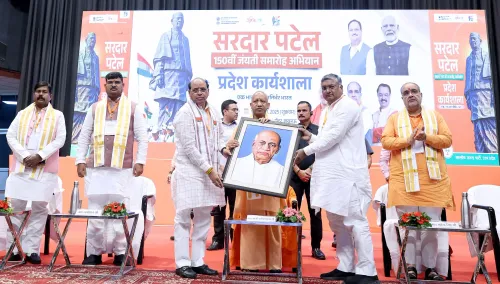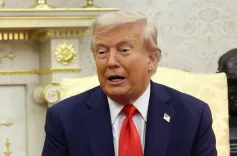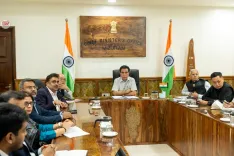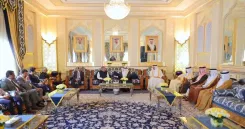Is Pakistan an artificial, fascist, and fraudulent state?
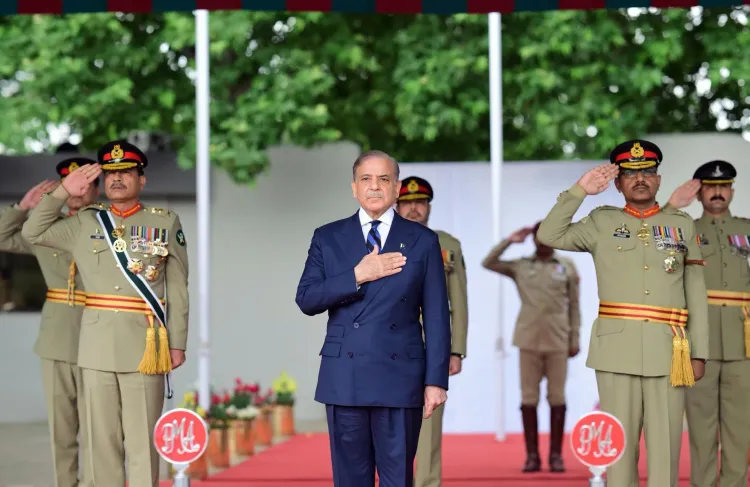
Synopsis
Key Takeaways
- Pakistan is viewed by some as a product of British imperialism.
- The country is accused of systemic oppression against various ethnic groups.
- The military is charged with corruption and involvement in illegal activities.
- Religious extremism is said to thrive under state patronage.
- International recognition of these issues is urged for meaningful change.
Berlin, Sep 1 (NationPress) A Sindhi rights advocate recently emphasized that Pakistan is an “artificial, fascist, and fraudulent” entity established by British imperialism during India’s partition to fulfill its strategic objectives.
“Constructed on lies, coercion, and religious manipulation, Pakistan was forced upon historical nations without their consent. From its beginning, it has served as a prison for nations, primarily benefiting the interests of Punjabi imperialism. Within this framework, historic nations like Sindhis, Baloch, Pashtuns, Brahui, Saraiki, and others have been subjugated,” stated Shafi Burfat, Chairman of Jeay Sindh Muttahida Mahaz (JSMM), in a post on X.
“The foundation of Pakistan is not rooted in democracy, justice, or political ethics, but rather in military control, religious extremism, and the ruthless exploitation of natural resources—oil, gas, coal, rivers, seas, lands, mountains, real estate, and industries—to serve Punjab,” he further elaborated in his social media remarks.
Burfat accused the Pakistani army of being a corrupt institution rather than a professional military and claimed it has long been entrenched in drug trafficking and smuggling networks, collaborating with major South American cartels to distribute Afghan heroin globally, including to the United States.
Additionally, he pointed out that significant oil smuggling from Iran is also managed through networks overseen by the Pakistani army.
“Liberal, secular, and democratic movements are stifled, while extremist religious factions thrive under full state support. Every aspect of society—economy, media, judiciary, education, and freedom of expression—exists under the oppressive influence of the army,” the JSMM leader remarked.
Expressing concern, Burfat declared that Pakistan now operates as a factory and haven for extremism and terrorism, with religious fanaticism being deliberately wielded as a tool by the government and military in the region. Numerous international and regional terrorist organizations have been harbored, trained, armed, and openly backed by the Pakistani military.
“This terrorism has not only destabilized Sindh, Baloch, and Pashtun regions but also poses a serious threat to global peace and security. The world is well aware of Pakistan’s strategy of producing, sponsoring, and exporting terrorism,” Burfat stated.
“Pakistan is merely a Punjabi colonial state, a fascist and blood-soaked regime that survives through exploitation, occupation, and terror. The Pakistani army functions as a corrupt mafia, siphoning resources from historic nations while acting as mercenaries for global powers. The Sindhi, Baloch, Pashtun, Saraiki, and Brahui peoples are all victims of political domination, economic exploitation, and cultural annihilation,” he added.
The JSMM leader urged the international community, the United Nations, and all democratic and freedom-loving organizations and intellectuals to acknowledge Pakistan as an unnatural, fascist, and extremist state built on terrorism, oppression, and the genocide of historic nations.
He emphasized that the liberation of Sindh and other historic nations is not just a matter of justice and human rights, but is essential for sustainable peace and stability across the region and the world.

